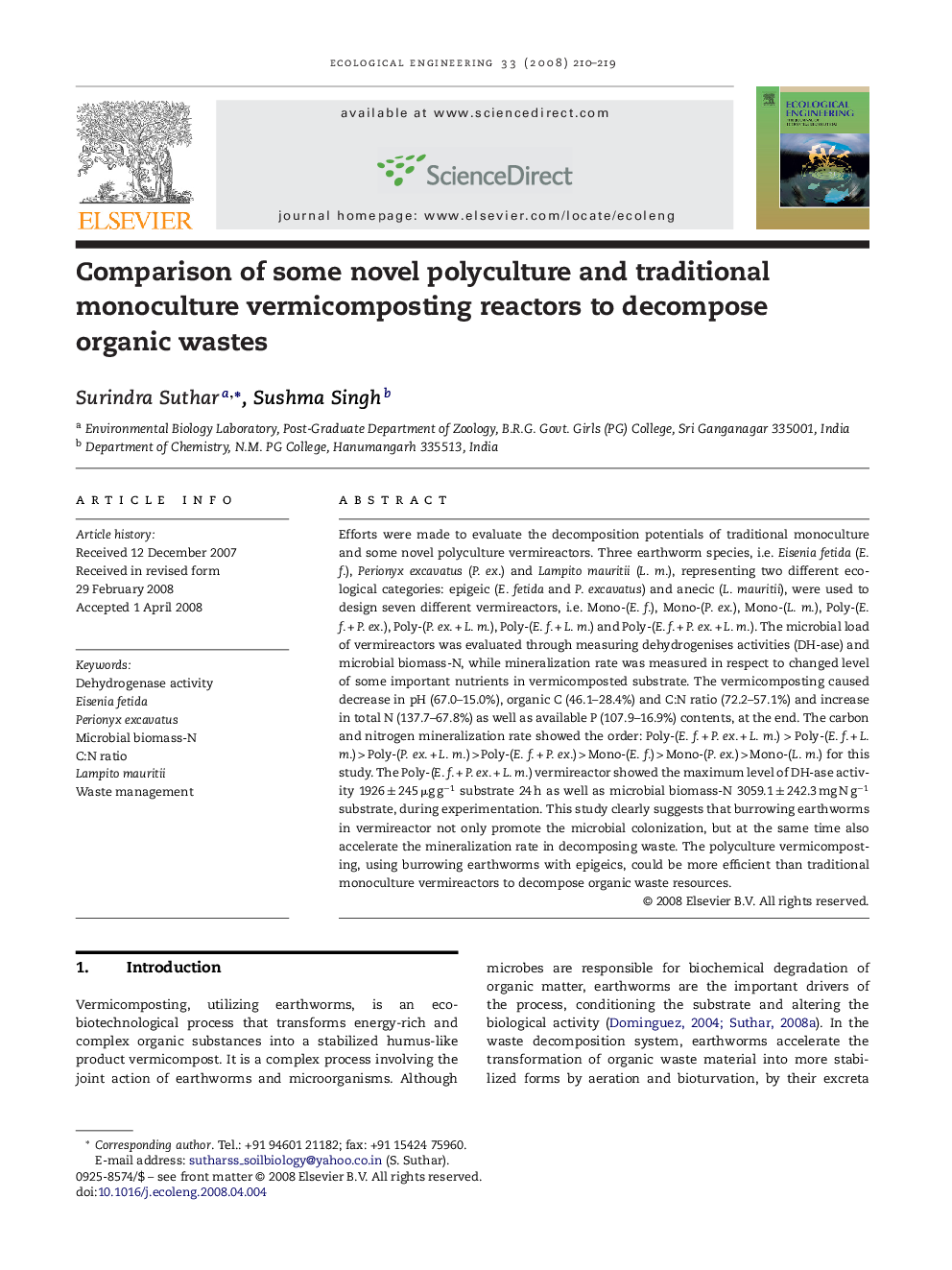| کد مقاله | کد نشریه | سال انتشار | مقاله انگلیسی | نسخه تمام متن |
|---|---|---|---|---|
| 4390790 | 1618060 | 2008 | 10 صفحه PDF | دانلود رایگان |

Efforts were made to evaluate the decomposition potentials of traditional monoculture and some novel polyculture vermireactors. Three earthworm species, i.e. Eisenia fetida (E. f.), Perionyx excavatus (P. ex.) and Lampito mauritii (L. m.), representing two different ecological categories: epigeic (E. fetida and P. excavatus) and anecic (L. mauritii), were used to design seven different vermireactors, i.e. Mono-(E. f.), Mono-(P. ex.), Mono-(L. m.), Poly-(E. f. + P. ex.), Poly-(P. ex. + L. m.), Poly-(E. f. + L. m.) and Poly-(E. f. + P. ex. + L. m.). The microbial load of vermireactors was evaluated through measuring dehydrogenises activities (DH-ase) and microbial biomass-N, while mineralization rate was measured in respect to changed level of some important nutrients in vermicomposted substrate. The vermicomposting caused decrease in pH (67.0–15.0%), organic C (46.1–28.4%) and C:N ratio (72.2–57.1%) and increase in total N (137.7–67.8%) as well as available P (107.9–16.9%) contents, at the end. The carbon and nitrogen mineralization rate showed the order: Poly-(E. f. + P. ex. + L. m.) > Poly-(E. f. + L. m.) > Poly-(P. ex. + L. m.) > Poly-(E. f. + P. ex.) > Mono-(E. f.) > Mono-(P. ex.) > Mono-(L. m.) for this study. The Poly-(E. f. + P. ex. + L. m.) vermireactor showed the maximum level of DH-ase activity 1926 ± 245 μg g−1 substrate 24 h as well as microbial biomass-N 3059.1 ± 242.3 mg N g−1 substrate, during experimentation. This study clearly suggests that burrowing earthworms in vermireactor not only promote the microbial colonization, but at the same time also accelerate the mineralization rate in decomposing waste. The polyculture vermicomposting, using burrowing earthworms with epigeics, could be more efficient than traditional monoculture vermireactors to decompose organic waste resources.
Journal: Ecological Engineering - Volume 33, Issues 3–4, 3 July 2008, Pages 210–219